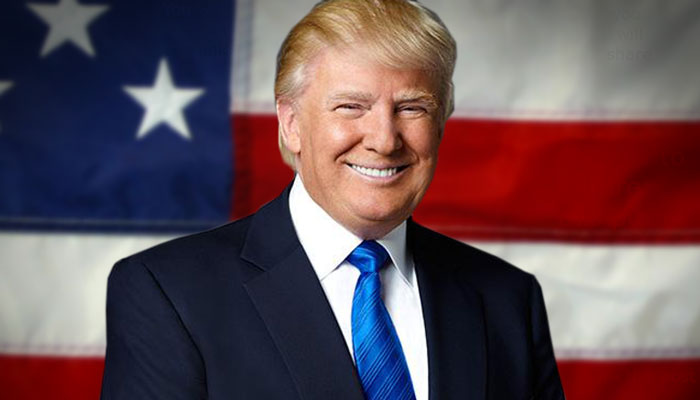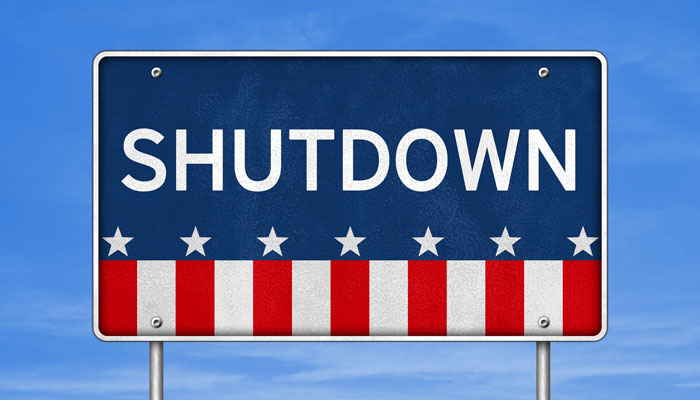There have been two positives about the Trump administration from the Australian perspective.
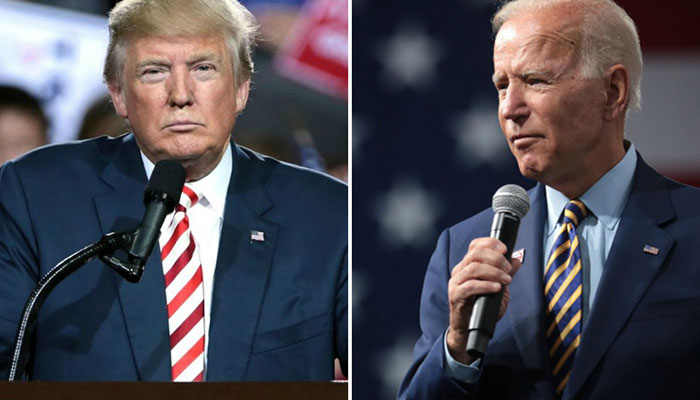
High stakes: Donald Trump and Joe Biden ... whoever wins, Australia needs the US to exert strong leadership in our region, says Dr Lee. Photo credit: Flikr and Wiki Commons/ThePrint
First, when Trump came to power, he was a political outsider who had no pre-existing experience of foreign policy. A number of his foreign policy team were also new to those kinds of roles and in many ways, this made them more open to different approaches.
Australia as a result knew it was important to build relationships with the new Administration early, and to understand and work with what can be a more unorthodox approach to US foreign policy, including a greater preparedness to confront existing problems and take risks.
The second positive for Australia has been the US’s geostrategic stance towards China.
I don’t think there is as much confidence we would have as intimate a relationship with a Biden administration.
The Administration has led a decisive shift in the US approach to China, naming it in the 2017 National Security strategy as a geostrategic competitor for the first time, and acknowledging trends that had become apparent even during the Obama Administration. It has moved to directly counter and balance China in our region.
Allies of the US are always worried about America’s resolve and determination to maintain a presence in the region and to defend them. With the Trump Administration taking bold steps to confront some of the worst aspects of Chinese policies and actions – on its trade practices, the Belt and Road Initiative, on its militarisation of the South China Sea – we have had less to worry about.
That in turn affects what Australia can do: we need America to exert strong leadership, which makes it easier for us to take strong leading positions in the region.
High-level relationships
The focus generally when it comes to Trump has been on his idiosyncratic character, his combativeness, and some say his narcissism, but Australian leaders and bureaucracy have actually been very good at working with those traits.
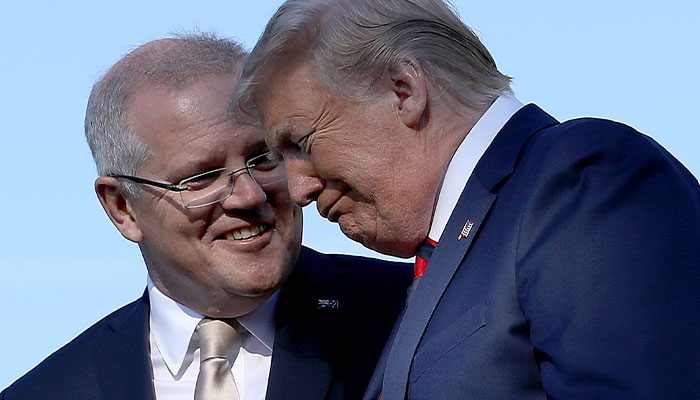
Close ties: Scott Morrison with President Trump during a state visit to Washington by the Australian Prime Minister in 2019 ... ties may not be so close with a Biden team, says Dr Lee.
Along with Japan, Australia has been very successful in gaining access to high-level decision-makers compared with most other countries, and has worked hard to craft and carve out exceptions for itself.
For example during Trump’s trade war with China, many American allies were caught up in the tariffs the US put on various goods, but Australia was able to successfully lobby for an exception to those tariffs.
I don’t think there is as much confidence we would have as intimate a relationship with a Biden Administration.
Connections at the top have not yet been made and in contrast to Trump and his team, Biden is a traditional, experienced Washington player, and the team he would bring with him are also experienced, well-established foreign policy players.
They have their own history and well-developed ideas, whereas the Trump Administration was more open to new ideas and new thinking from allies such as Australia.
America’s stance in our region
Under the Obama Administration, its pivot to Asia involved recognition that China’s power was growing in the region, that the military balance between the US and China was shifting unfavourably, and that there was a potential for America to be almost eased out of the region as a result.
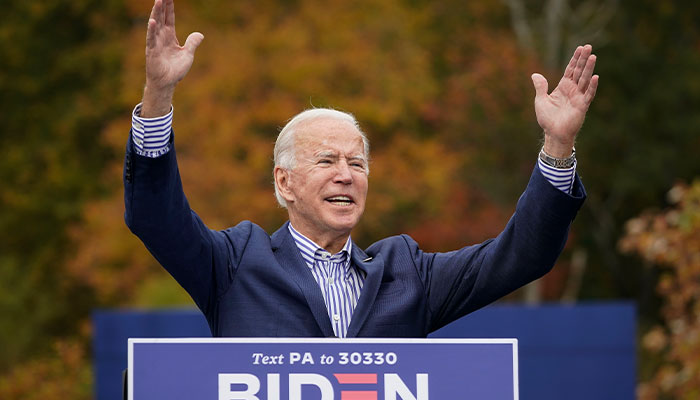
Status quo: Joe Biden on the 2020 trail ... a Biden Administration would also have Australia's back, and aim to counter and balance China, says Dr Lee.
This was during the period where China was aggressively reclaiming land and building artificial islands in the South China Sea. Then Beijing promised it wouldn’t militarise those islands, but subsequently did and continues to do so, as well as aggressively pursuing its territorial claims in the South China Sea vis a vis other countries.
Obama wasn’t ready to boldly confront China about its behaviour, and as a result China was able to disregard international law and use these artificial islands to project its military power in the region.
From Australia’s perspective, what has been refreshing about the Trump Administration is that it can’t be accused of dithering or indecisiveness: it has been willing to more directly confront many of China’s geostrategic moves, including through freedom of navigation operations.
The conversation about China has dramatically changed in Washington, and no matter who wins, there is the recognition that the relationship with China is now a competitive one.
Australia is concerned about China’s military actions in our region and is currently the subject of economic coercion by Beijing for taking a strong stand against foreign interference in our domestic political processes and also for calling for an investigation into the origins and management of the Coronavirus crisis by the WHO. Under the Trump Administration, we have been confident that in taking these positions, the US has had our back.
I think that, broadly speaking, it would be the same under a Biden Administration, notwithstanding the less intimate relationship.
This is because the conversation about China has dramatically changed in Washington, and that no matter who wins the election, there is the recognition that the relationship with China is now a competitive one.
There is no longer a hope that China would be absorbed within the existing US-led order; rather it is now seen as a competitor keen to reshape international order to suit its own authoritarian capitalist model.
Trump and Biden would both aim to counter and balance China, so the difference would not be about aims and objectives, but rather the methods.
Effects of ‘America First’
While Australia is better off in the sense that issues such as China’s trade practices are being confronted, it is worse off in the sense that Trump’s approach has been bilateral, in line with his America First policy.
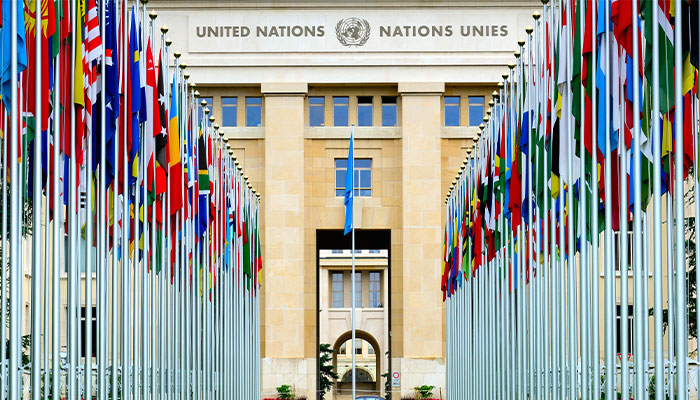
Taking the lead: A Biden Administration would correct some of the mistakes made by the Trump Administration in its approach to international institutions such as the UN, says Dr Lee.
For countries like us, we want to see those types of issues tackled at the broader, international and institutional level. We want to see reform of the World Trade Organisation, which will then allow us to benefit from any progress that America makes with China.
The US under Trump doesn’t value as much as it should, the power that comes with US leadership within international institutions, such as the UN and its various bodies. And we have to remember that the US created these institutions after World War II and effectively moulded them in a way that furthers US values through taking a liberal democratic approach to international order.
- Report shows ongoing cyber threats to government websites
- Can you really make friends with an octopus?
The Trump Administration’s approach is to point out the failings of these institutions and dismiss and undermine them in many ways, rather than seek to lead reform of them – and that is to the advantage of China, because China steps in and says, we are a constructive player, we will take the lead; and if China does that, there is a greater scope for the institution to end up supporting China’s national interests and values.
Trump’s propensity to create such power vacuums is about a mindset which personally I can see no signs of changing during a second term. It is a mindset that is sceptical of the role of institutional power, and believes America is too restrained by institutions and should be able to propel its national interests without those restraints.
A Biden Administration would I think correct some of these mistakes.
Benefits of an international approach
Trump’s America First mantra, which seems very nationalistic and very exclusive, is an approach that the Biden side sees as alienating allies, of whom Trump has been publicly critical particularly about their alleged lack of sufficient burden sharing.
A Biden Administration would want to re-assert leadership in global institutions and would promote a more values-based diplomacy.
To the Biden side, that is a counter-productive approach. Its stance is that America should take a more consultative and collaborative approach to allies and bring them together under US leadership.
It appreciates that power is not all about geostrategy and militaries but can be institutionalised – that if you have the power to set agendas, make rules and influence processes at the international level, that itself is power. A Biden Administration would want to re-assert leadership in global institutions and would promote a more values-based diplomacy including the support for human rights and democracy.
- Biology revolution: massive task to map every protein is almost complete
- New breast implant study launched as risk evidence mounts
The Quad, an informal strategic forum between the US, Japan, India and Australia, is a prime example of the kind of approach the Trump Administration likes, in that it builds coalitions outside of the formal institutions. It is shaping up to be a very important vehicle by which the US leads but within a grouping of like-minded and capable countries that works together to agree on and implement common positions and policies, and then advocates for them in larger institutions regionally, such as ASEAN.
I believe a Biden Administration would also value these types of ‘coalitions of the willing’, but that the emphasis would be much more on bringing broader coalitions together using existing institutions such as ASEAN, as well as exerting leadership within existing UN forums. So it would be a much more holistic approach.
Dr Lavina Lee is a Senior Lecturer in the Department of Modern History, Politics and International Relations at Macquarie University

